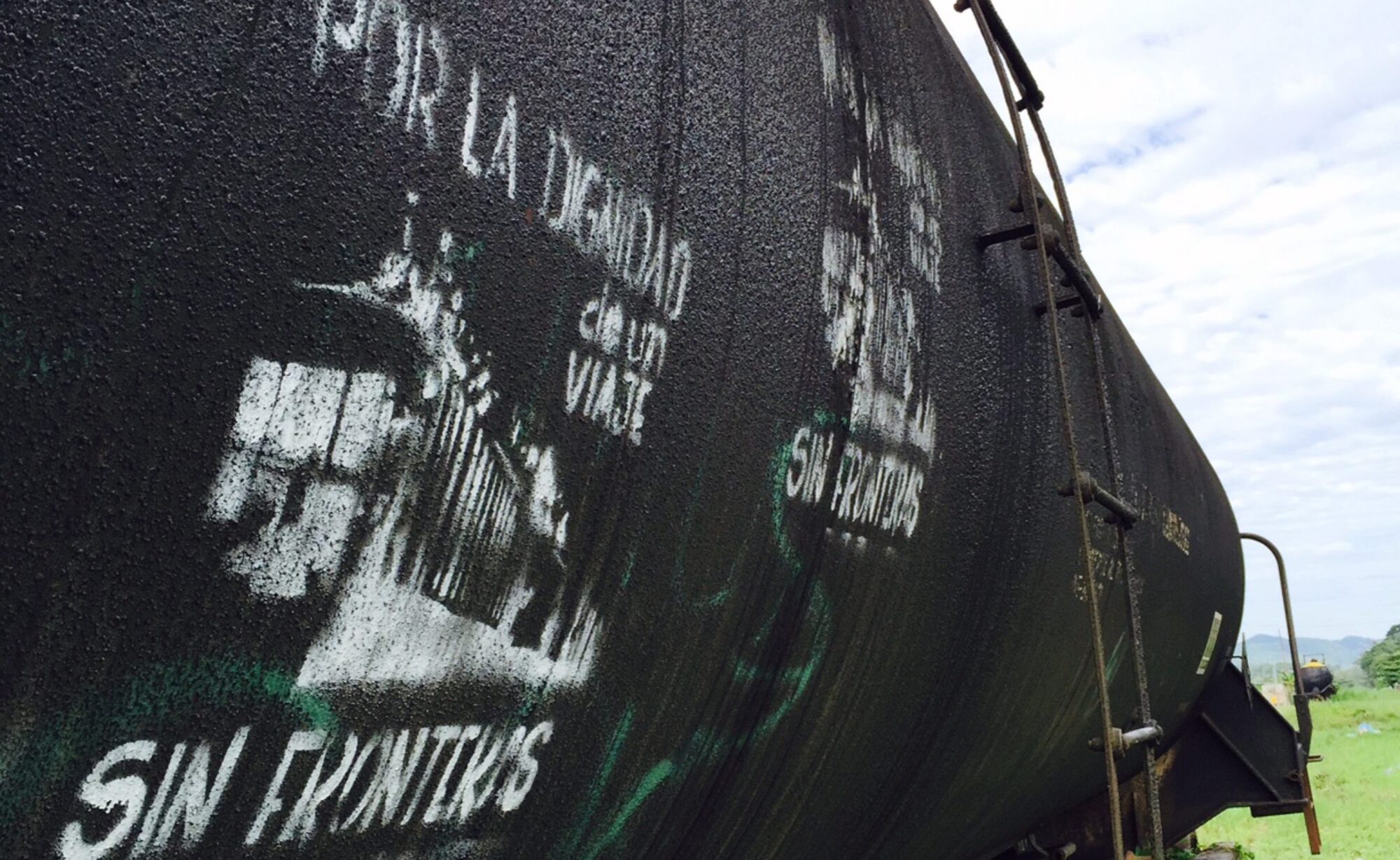It isn’t exactly the towering 20-foot wall that runs like a scar through significant parts of the U.S.-Mexican borderlands. Imagine instead the sort of metal police barricades you see at protests. These are unevenly lined up like so many crooked teeth on the Dominican Republic’s side of the river that acts as its border with Haiti. Like dazed versions of U.S. Border Patrol agents, the armed Dominican border guards sit at their assigned posts, staring at the opposite shore. There, on Haitian territory, children splash in the water and women wash clothes on rocks.
One of those CESFRONT (Specialized Border Security Corps) guards, carrying an assault rifle, is walking six young Haitian men back to the main base in Dajabon, which is painted desert camouflage as if it were in a Middle Eastern war zone.
If the scene looks like a five-and-dime version of what happens on the U.S. southern border, that’s because it is. The enforcement model the Dominican Republic uses to police its boundary with Haiti is an import from the United States.
This article originally appeared at TomDispatch.
